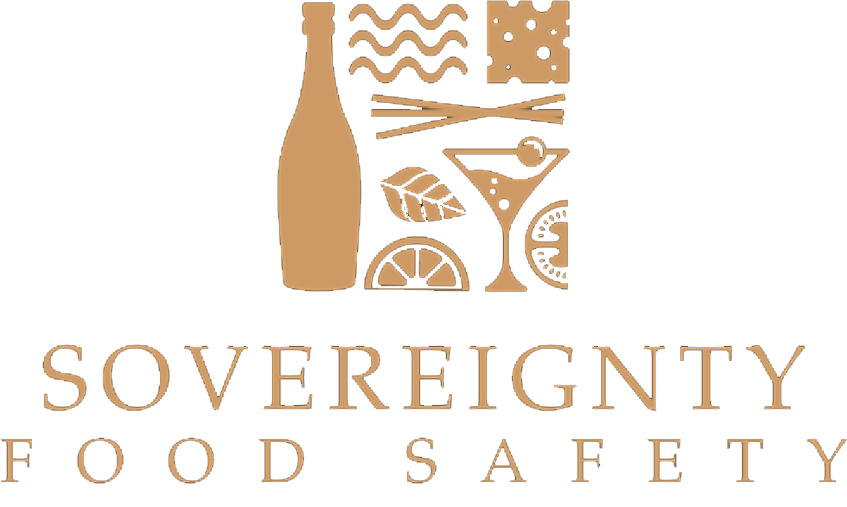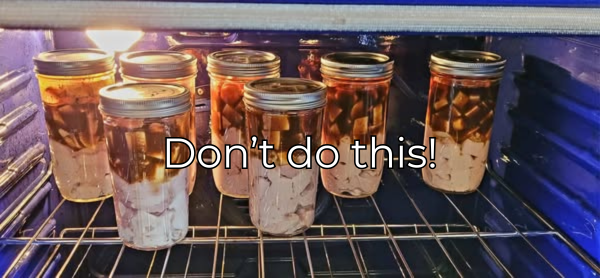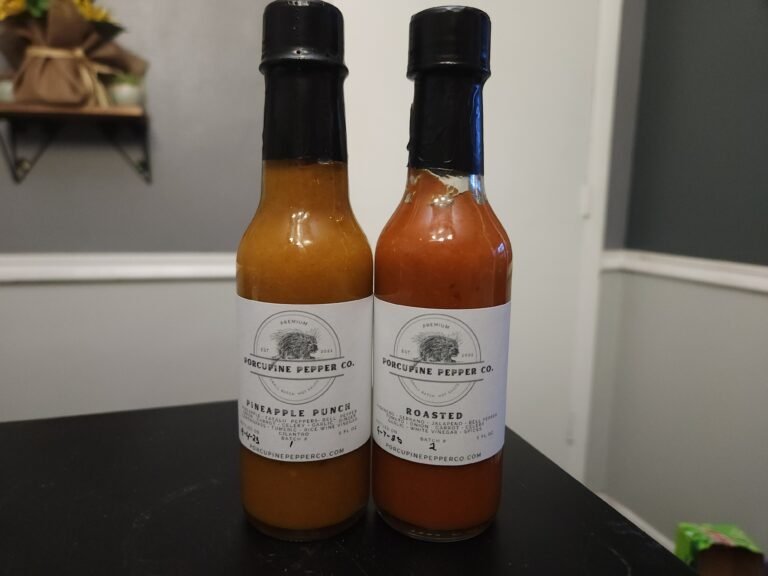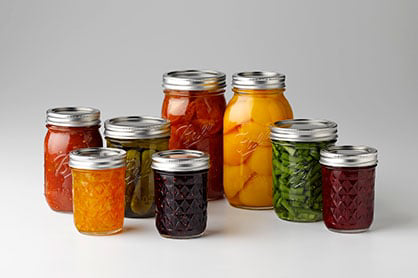As a chef, I’ve spent my life deeply connected to food. From working in dozens of restaurants to raising chickens and growing my own vegetables, I’ve come to appreciate the incredible value of being able to feed oneself and one’s family. To me, food sovereignty—the right to grow your own crops and raise your own animals—isn’t just an idea; it’s a natural right and a cornerstone of true independence.
But as I’ve navigated this journey, I’ve witnessed firsthand how government policies and regulations often hinder that independence. The barriers to self-reliance are numerous, and they disproportionately impact those who could benefit the most from growing their own food. It’s time to have a frank conversation about how these regulations stifle our ability to feed ourselves, especially in a world where food prices are skyrocketing.
The Case for Food Sovereignty as a Natural Right
Spending a lifetime immersed in the world of food, I believe that the ability to grow and raise your own food is one of the most basic and fundamental human rights. Food is not just sustenance—it is survival, culture, community, and independence.
Philosophers and economists alike have long supported the notion of self-reliance as a foundation of freedom. Friedrich A. Hayek argued that decentralized systems, where individuals make decisions based on their unique knowledge and circumstances, are not only more efficient but also more just. He wrote, “The knowledge of the circumstances of which we must make use never exists in concentrated or integrated form but solely as the dispersed bits of incomplete and frequently contradictory knowledge which all the separate individuals possess.” Restricting food production undermines this principle by centralizing control and stifling local, personal decisions.
Murray Rothbard’s philosophy of self-ownership underscores the natural right to food sovereignty. He stated, “The right to self-ownership asserts the absolute right of each man, by virtue of his (or her) being a human being, to ‘own’ his or her own body; that is, to control that body free of coercive interference.” Growing food, tending animals, and feeding one’s family are extensions of this fundamental principle.
Yet today, our connection to food is under siege. Governments and corporations have increasingly sought to control the means of food production, turning something as essential as eating into a commodity governed by rules and restrictions. Ludwig von Mises, a pioneer of the Austrian School of economics, warned against the dangers of excessive regulation. He observed, “The individual alone is the true subject of economic activity. Only individuals think, value, and act.” Applying this to food production, individuals are best positioned to decide how to feed their families, free from unnecessary interference.
The Weight of Government Regulations
Almost every aspect of our lives is regulated by people who are disconnected from those they represent. While some regulations are well-intentioned, they often create more problems than they solve.
Growing Your Own Food
Growing your own food should be simple, but it’s not always allowed:
Zoning Laws
- Intention: To maintain community standards, protect property values, and address health concerns related to pests and maintenance.
- Outcome: Fines, reduced food security, and restrictions on personal freedom to grow food, even in residential yards. For example, a Florida couple was fined for growing vegetables in their front yard despite no evidence of harm to the community.
Water Restrictions
- Intention: To manage water usage, particularly in drought-prone areas, and conserve resources.
- Outcome: People are prevented from collecting rainwater to irrigate their crops. In Colorado, homeowners have faced legal challenges simply for installing rain barrels to water their gardens.
Seed Restrictions
- Intention: To protect intellectual property and regulate the spread of genetically modified organisms (GMOs).
- Outcome: Limits on sharing heirloom seeds disrupt local seed-saving practices and reduce genetic diversity. In some states, gardeners have been fined for selling unregulated seeds at local markets.
Raising Animals
When it comes to raising animals for meat or eggs, the barriers get even steeper. I’ll focus on chickens and rabbits because they have the lowest barrier to entry for sustainable meat production:
Chicken Restrictions
- Intention: To address concerns about noise, hygiene, and potential health risks associated with poultry in residential areas.
- Outcome: Total bans, strict limits on flock size, coop placement, and waste disposal. In Michigan, small-scale chicken keepers have been fined or ordered to remove their coops, even when their practices meet basic health standards.
Rabbit Breeding Restrictions
- Intention: To prevent overpopulation, protect animal welfare, and regulate commercial breeding operations.
- Outcome: Small-scale homesteaders face unnecessary licensing requirements or outright bans, even when breeding rabbits responsibly for personal use. In one notable case, a family in Maryland was fined thousands of dollars for breeding rabbits to sell at a local fair.
Processing Laws
- Intention: To ensure food safety and public health standards by regulating meat processing on an industrial scale.
- Outcome: Small-scale homesteaders are required to comply with the same complex regulations as large farms, making it prohibitively expensive and difficult to sell poultry or meat from small operations.
USDA Burdens and Loopholes
One of the biggest challenges comes with raising animals for meat. Under federal law, all meat intended for sale must be processed in a USDA-approved facility, which means a government-employed inspector has to be present. These inspectors are paid by small farmers like me, creating an immense financial burden.
This system doesn’t just make it harder for small farmers to survive—it limits consumer choice and drives up the cost of local, sustainably raised meat. One workaround is the use of “cow shares,” where customers buy a portion of a live animal before it’s processed, avoiding USDA oversight. While it’s a clever way to sidestep unnecessary regulations, it’s absurd that farmers and consumers have to jump through these hoops just to enjoy locally raised meat.
The Chicken Conundrum
I’ve raised chickens for years, and they’re one of the easiest and most rewarding ways to produce food. Yet, federal laws like the Poultry Products Inspection Act make it incredibly difficult for small-scale producers to sell poultry. Even backyard chicken keepers face restrictions that make no sense for people raising a few birds for personal use.
For families on tight budgets, these rules can make backyard poultry farming—one of the most cost-effective ways to provide protein—nearly impossible. It’s yet another example of how regulations that claim to “protect” actually harm the most vulnerable.
Inflation, Food Costs, and the Impact on Families
I’ve spent years working with people from all walks of life, and it’s clear to me that these laws hit lower-income households the hardest. For many families, the ability to grow food or raise a few chickens could mean the difference between having enough to eat and going hungry.
In today’s economy, where food prices are soaring, growing your own food is also a hedge against inflation. A home garden or small flock of chickens can provide a steady supply of fresh, affordable food while reducing dependence on grocery stores.
Proactive Steps for Food Freedom
Food sovereignty is about reclaiming what has always been ours: the freedom to grow, harvest, and enjoy food that nourishes us and our communities. It’s a right we must defend, not just for ourselves but for future generations who deserve the opportunity to experience the same connection to food and the land.
Here’s how we can take meaningful steps toward achieving food freedom:
- Educate Yourself and Others: Learn about the regulations that impact food sovereignty and share that knowledge with your community.
- Support Local Farmers: Buy from local producers who are navigating these barriers to provide fresh, sustainable food.
- Advocate for Legislative Change: Write to your local, state, and federal representatives to demand the removal of unnecessary restrictions on growing and raising food. Join food sovereignty organizations and participate in grassroots movements to amplify your voice.
- Engage in Community Action: Host workshops, attend town meetings, and support initiatives that prioritize food sovereignty.
- Start Small: Plant a garden, raise chickens, or learn to preserve food. Each step strengthens your independence and helps build a resilient food system.
Ultimately, food sovereignty isn’t just about food—it’s about freedom. As Hayek once wrote, “To be controlled in our economic pursuits means to be always controlled in everything.” It’s time we take back control, one garden and one flock at a time.





